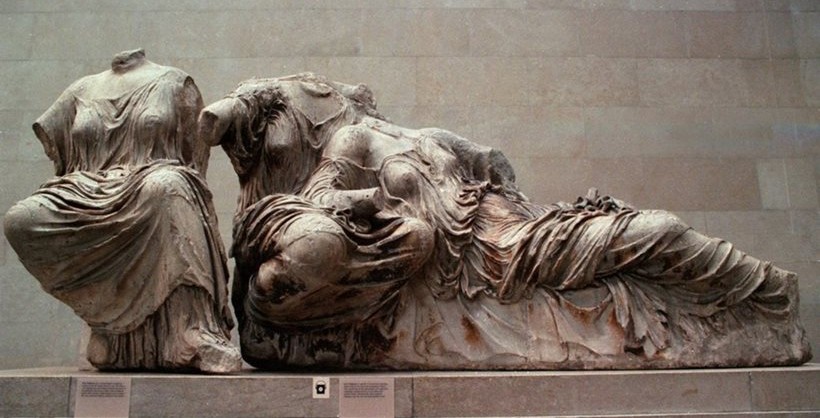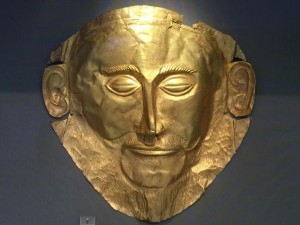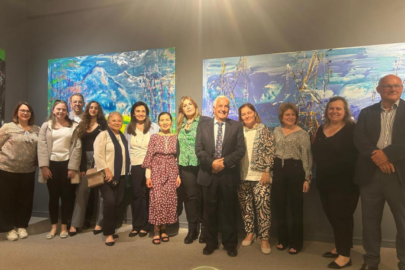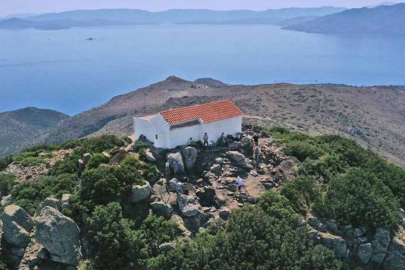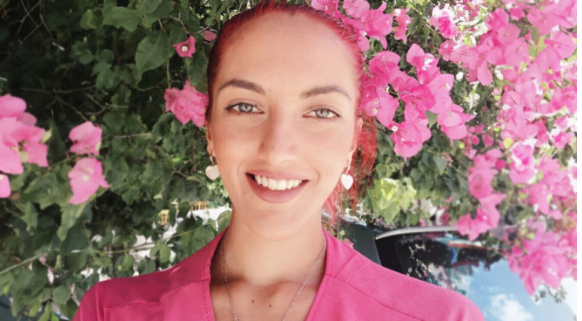Greece is offering the British Museum unique ancient archaeological pieces in exchange for the Parthenon Marbles, reports the Independent. From the Independent:
Greece has called for the return of the so-called Elgin Marbles from the British Museum as a symbolic act in the fight against anti-democratic forces seeking “the dissolution of Europe”.
The Athens government, which decided against taking legal action against the UK last year, will instead renew diplomatic efforts with an offer to regularly loan some of the wonders of Ancient Greece to British institutions in exchange.
Greek museums hold astonishing art works created in antiquity. The arrival of art such as the “golden mask of Agamemnon” or the statue of Zeus/Poseidon could be expected to cause the same kind of interest as the first arrival in the UK of the Terracotta Army from China in the 1980s.
The Marbles, taken by Lord Elgin more than 200 years ago when Greece was part of the Ottoman Empire, represent about half the sculptures that once adorned the Parthenon temple. It was built in Athens about 2,500 years ago after the world’s first democracy fought off attempts by the Persian Empire to conquer the city. The sculptures are widely recognised as among the finest ever created.
Lydia Koniordou, the Greek Minister of Culture and Sport, said allowing the restoration of this founding monument of Western values would send a message about Europe’s commitment to democracy – at a time when many believe this is under threat from rising nationalism.
“The reunification of the Parthenon Marbles will be a symbolic act that will highlight the fight against the forces that undermine the values and foundations of the European case against those seeking the dissolution of Europe,” Ms Koniordou said.
“The Parthenon monument represents a symbol of Western civilization. It is the emblem of democracy, dialogue and freedom of thought.”
Greece is carrying out restoration work on the Parthenon and has built a museum specifically designed to display the sculptures, but currently only has slightly less than half of them. Other fragments are held by several museums in Europe.
Elgin’s staff removed the sculptures somewhat crudely – for example, the heads of a centaur and a human in a dramatic fight scene are in Athens, while their bodies are in London. Professor Louis Godart, the newly elected chairman of the International Association for the Reunification of the Parthenon Sculptures (IARPS), said: “It’s unthinkable that a monument which has been torn apart 200 years ago, which represents the struggle of the world’s first democracy for its own survival, is divided into two.
“We must consider that the Parthenon is a monument that represents our democratic Europe so it is vital that this monument be returned to its former glory.”
In a statement, IARPS said the Greek government had “resolved to renew and intensify its efforts for the return of the Parthenon Sculptures”.
“The centrepiece of Greece’s renewed push for the return of the sculptures will be a proposal – made in a true spirit of compromise – to offer recurring, long-term loans of rare archaeological treasures from Greek museums in exchange for the return of the Parthenon Sculptures from the British Museum,” IARPS said.
“Greece and its supporters will not rest until all the known surviving sculptural elements from the Parthenon are reunited in the Acropolis Museum in full view of the monument which they once adorned.”

